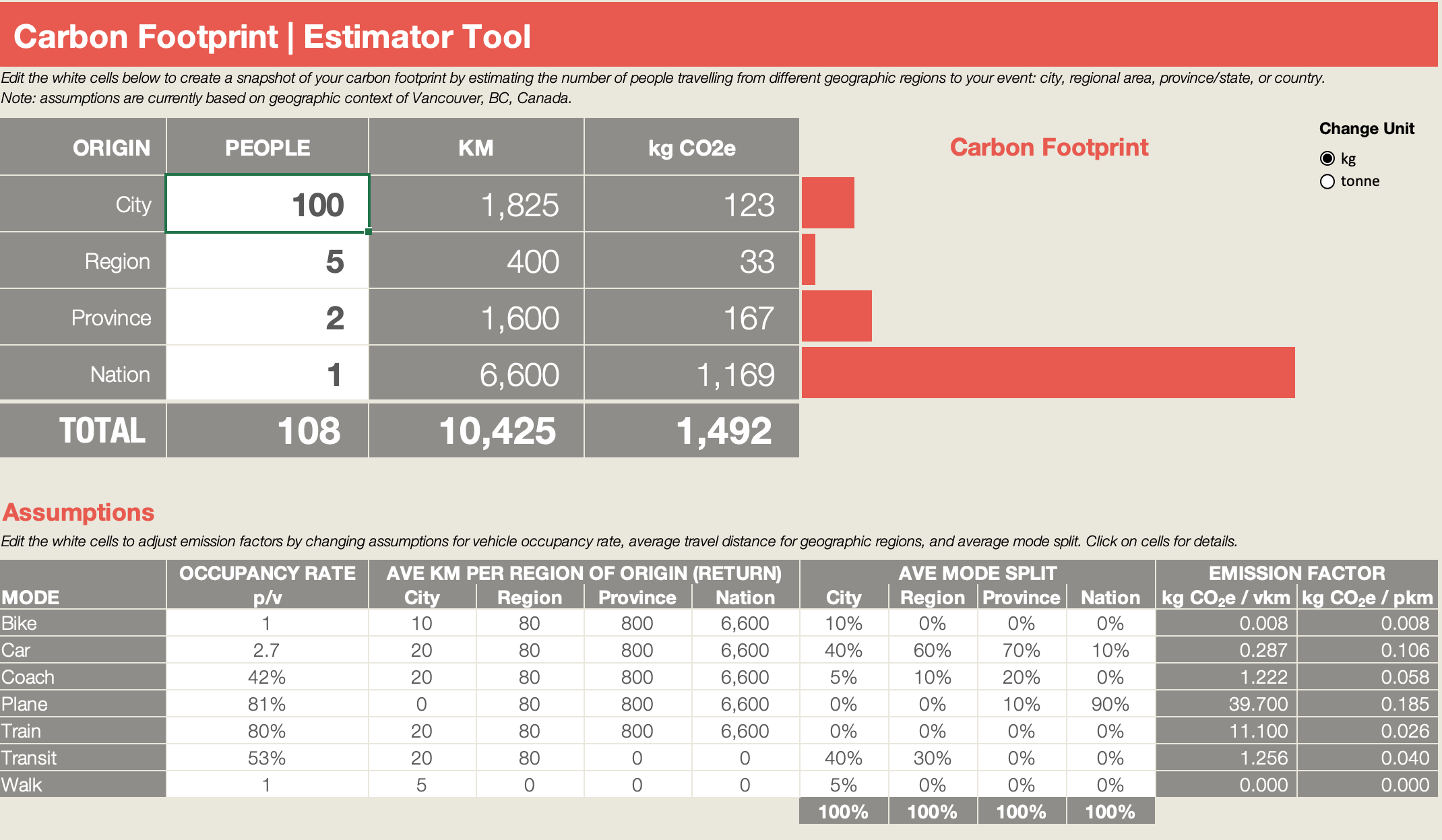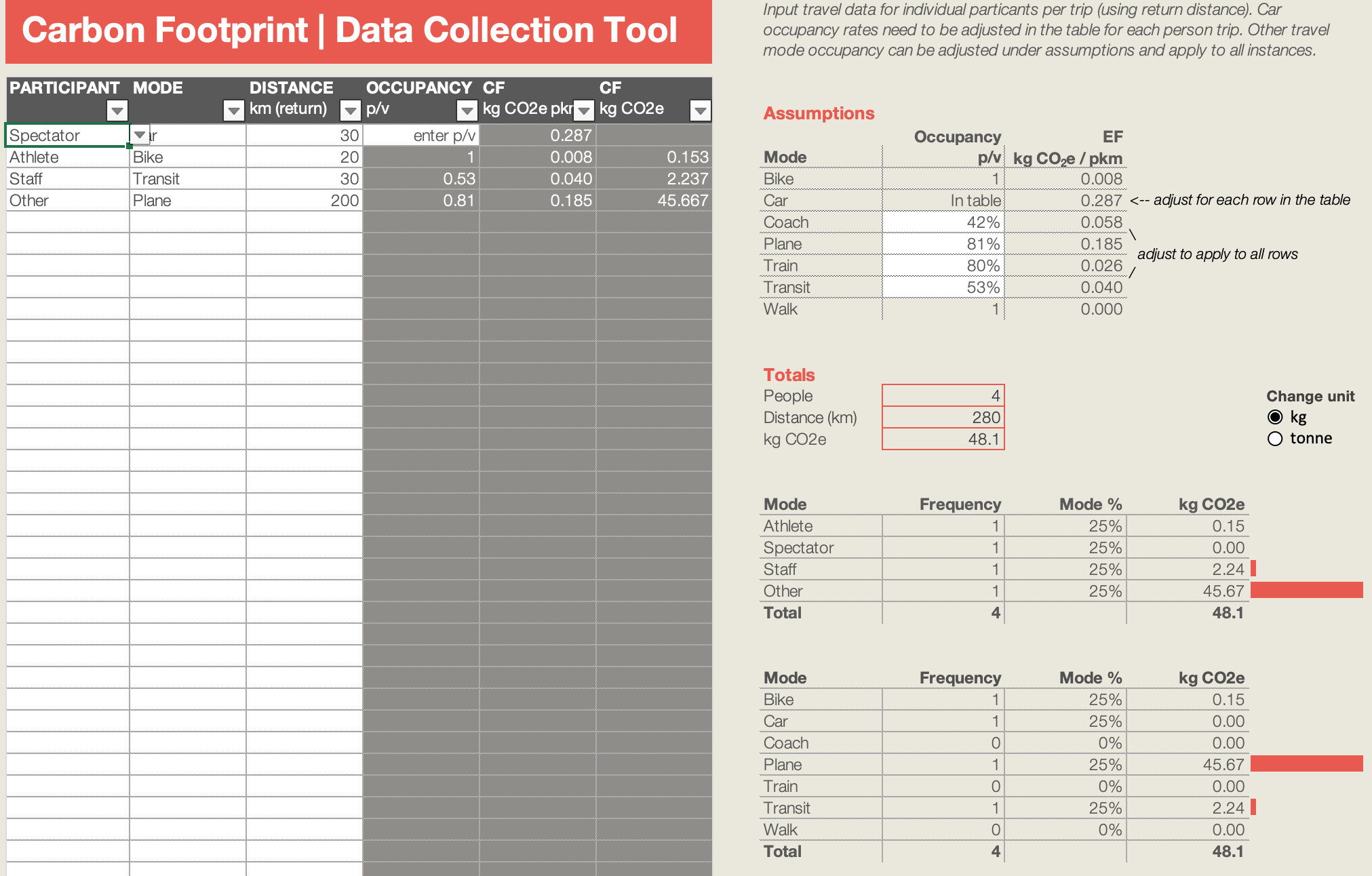On this page you will find information about an 'Event Travel Carbon Estimator Tool', created by Dr. Matt Dolf. This tool is intended to assist with estimating the carbon footprint of participant travel to events. It is also useful as a teaching tool for high school or postsecondary courses to understand carbon footprinting methodology. While initially developed for sports events, it can be adapted for use with any type of event or activity involving travel - music festival, conferences, commuting to school or work, etc.
There are two options for calculating your carbon footprint:
1) the Estimator Tool lets you quickly input the number of people coming from approximate distances to get a snapshot. You can also adjust the underlying assumptions. This approach is especially helpful to estimate impacts early in the event planning cycle and then refine assumptions and results along the way. See the screenshot of the Estimator Tool below.

2) the Data Tool lets you input data for individual participants by entering travel mode, distance, and occupancy rates. This is a great way to increase the accuracy of your carbon footprint if you can collect this data from participants. See the screenshot of the Data Tool below.
UBC's Centre for Sport & Sustainability hosted an event that featured a presentation of this tool by Dr. Matt Dolf, accompanied by a panel discussion about the tool and about the sustainability of sport events more generally. We would recommend viewing Dr. Dolf's talk and the rich discussion that followed, as a companion to experimenting with this tool.
Download the tool here. You can choose whether your calculations appear in kilograms or tonnes. The FAQ sheet provides additional context and options for using this tool.

Dr. Matt Dolf, Director, UBC Wellbeing -- and Creator of Event Travel Carbon Estimator Tool
Matt has long been a passionate researcher and advocate of deepening our understanding of sport as a vehicle for positive change for people and ecology. He is co-creator of the Sport & Sustainability Event Toolkit; this was the first sustainability management guidance document for sports events and has been used by the International Olympic Committee and the Vancouver 2010 Olympic and Paralympic Games. His PhD dissertation at the UBC School of Kinesiology examined the life cycle assessment environmental impacts of sports events and produced the Event Travel Carbon Estimator Tool. Matt is currently the Director for the Office of Wellbeing Strategy at the University of British Columbia.
